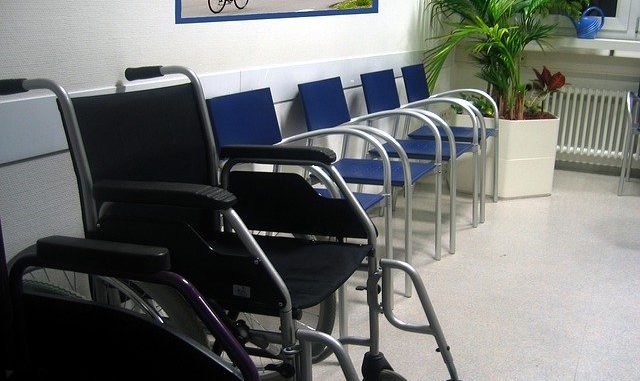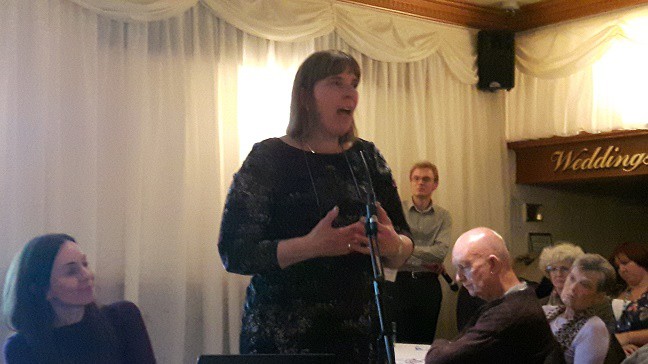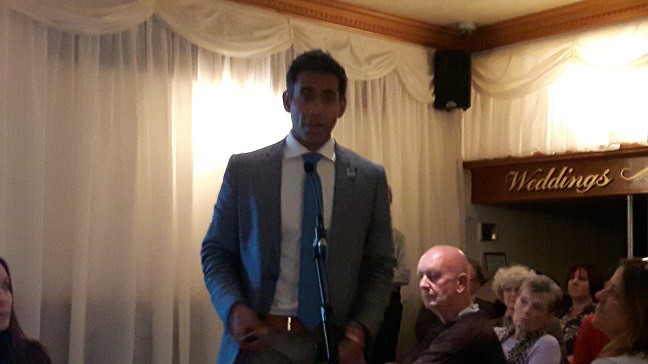
The number of full-time GPs in Thanet has fallen by a quarter between 2015-2019 according to analysis released by the Trades Union Congress (TUC).
Data collated by the TUC shows that although patient numbers have only risen by two per cent in the same timescale the isle is in need of 40 more GPs to reach a one GP per 1,600 patients ratio.
According to the research Thanet currently has an average 2848 patients per GP. At a national level the number of GPs has fallen by nearly 1,000 since 2015
Doctors’ leaders say the average number of patients GPs should have on their list is 1,600 in order to provide a high-quality service.
But in September this year the average number of patients per GP was 2,100 with patient lists increasing by 160 (8%), on average, since 2015.
With demand on GP surgeries increasing unions say an additional 9,000 doctors are needed to run services at the right level.
The average wait for a routine GP appointment is now more than two weeks.
Ramsgate surgeries all ‘at capacity’
All five Ramsgate GP surgeries were at full capacity -or over capacity – as reported by The Isle of Thanet News in October – and managing their lists by referring new patient requests to the Thanet Clinical Commissioning Group.
A letter from Newington Road Surgery states that the decision to manage lists is due to “the difficult situation we find ourselves in.”
It adds: “We came to this decision based on clinical safety reasons. We currently have nearly 8,000 patients and just two GPs, almost 4,000 patients per GP. The national average is 1,800 per GP.
“We have been advertising for a new GP to join our team since August 2015 without success. This is a situation echoed in practices locally and nationally.
“Junior doctors do not see general practice as an appealing prospect and many experienced GPs are burnt out through pressure of work and are leaving the profession.
“Some local surgeries have closed down recently, adding additional pressures on the remaining few.”
A letter from Dashwood Medical Centre also says the decision is due to clinical safety reasons with 10,400 patients and just three whole time GPs.
At The Grange there are 12,000 patients meaning it is at capacity. A letter from the practice says: “We have been advised by NHS England, Kent and Medway Area Team, that we may register new patients but we are not obligated.”
The practice says for safety reasons it will only register new patients each month equal to the number of people who have left the surgery in that timespan.
Significant challenge

Caroline Selkirk, Managing Director of East Kent Clinical Commissioning Groups, said: “The recruitment of GPs remains a significant challenge nationally, and for Thanet’s GP practices. Although GP practices are responsible for recruiting their own staff, NHS Thanet Clinical Commissioning Group continues to support all our practices to develop new models of care to support GPs and help improve patient access to healthcare.
“A number of additional services have been introduced to help patients receive the care they need at their local surgery. Advanced nurse practitioners, paramedic practitioners, clinical pharmacists, and a whole range of other healthcare professionals can also provide the care patients need without having to see a GP. Although patients can always still ask to see a GP if they would prefer.
“All Thanet’s GP practices are now organised in three Primary Care Networks. This means that practices are working together to better meet the needs of their patients. For instance a combined team of health and social care professionals, working within an Acute Response Team, provide an immediate response for patients who can be cared for at home with an appropriate care package to relieve pressure on local GPs.
“The opening of the Kent Medical School scheduled for 2020 will also support our efforts to recruit more GPs locally in the future.”
‘Burning out’
Thanet has 14 GP practices working in three Primary Care Networks – Ramsgate, Margate and Coastal and Rural East (CARE) covering Birchington, Broadstairs, Minster and Westgate.
The referrals to the CCG are specific to Ramsgate surgeries which have been ‘list managing’ since 2017.
In November 2018, residents at a public meeting in Ramsgate were told the shocking shortage of GPs, nurses, therapists and specialised medical staff is one of the driving forces behind proposals to change community health and hospital services in Thanet and across Kent and Medway.

Dr Jihad Malasi, chair of NHS Thanet Clinical Commissioning Group (CCG) which commissions health services, told the gathering some GP practices were unable to sustain themselves financially, with closures on the isle meaning surgeries had dropped from 17 to 13 in just 18 months.
He said: “Many of them have not been able to get the right staff and they have not been able to get locums. This is why we have to look very carefully at how we deliver things.
“Many GPs are burning out or are over a certain age. Demand on practices in phenomenal. We love our patients and love seeing them but when dealing with that level of demand it is difficult not to see people burning out.”
Patients registered at each Thanet surgery as of July 1
| Practice | Patients registered as of 1 July 2018 | Patients registered as of 1 July 2019 | Primary Care Network |
| Birchington medical centre | 8,867 | 8,888 | CARE |
| Broadstairs medical practice | 7,174 | 7,314 | CARE |
| Dashwood medical centre | 10,129 | 10,203 | Ramsgate |
| East Cliff practice | 15,693 | 15,720 | Ramsgate |
| Minster surgery | 8,415 | 8,467 | CARE |
| Mocketts Wood surgery | 9,161 | 9,214 | Margate |
| Newington Road surgery | 7,859 | 7,756 | Ramsgate |
| Northdown surgery | 9,994 | 10,117 | Margate |
| St Peters surgery | 4,539 | 4,519 | CARE |
| Summerhill surgery | 6,175 | 6,014 | Ramsgate |
| The Bethesda medical centre | 19,451 | 19,445 | Margate |
| The Grange medical practice | 11,999 | 11,976 | Ramsgate |
| The Limes medical centre | 16,140 | 16,671 | Margate |
| Westgate surgery | 10,147 | 10,571 | CARE |
TUC General Secretary Frances O’Grady said: “The Conservatives promised a big increase in GP numbers. But on their watch the number of doctors has fallen while demand has increased.
“Our hardworking and overstretched GPs are working tirelessly to help patients. But there are simply not enough of them to keep up with demand.
“As a result patients are not getting the treatments they need on time. And family doctors are stressed and overwhelmed.
“The next government must invest in our NHS and boost GP numbers.”
Figures used are via NHS Digital and are for the number of full time equivalent GPs. The data excludes registrars.

